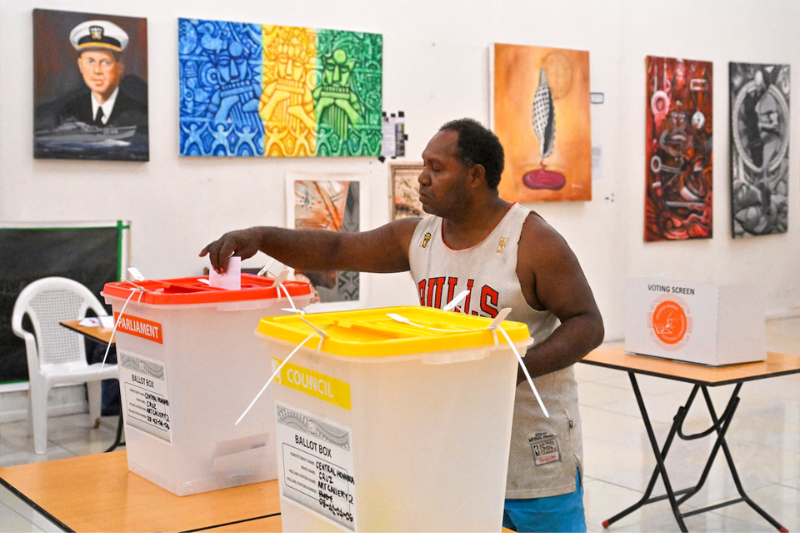
Solomon Islands Election: A Crucial Geopolitical Battleground
The Solomon Islands, a remote archipelago in the Pacific Ocean, is poised for a landmark election that has garnered international attention from major global powers, particularly China and the West. As the nation prepares to head to the polls, the outcome of this election holds significant implications not only for the country itself but also for the broader geopolitical landscape of the region.
Political Dynamics of Solomon Islands Election:
In the lead-up to the election, the Solomon Islands has witnessed a flurry of political activity characterized by intense campaigning, electoral maneuvering, and heightened geopolitical tensions. The incumbent leader, Manasseh Sogavare, finds himself at the center of a geopolitical tug-of-war between China and traditional Western allies, notably Australia and the United States.
The Solomon Islands’ strategic location in the Pacific Ocean has made it a focal point of geopolitical competition between China and the West. Against the backdrop of China’s rising influence in the region, the election serves as a litmus test for Sogavare’s pro-China policies, which have reshaped the country’s foreign relations landscape.
Keep Reading
China Influence is Growing in the Region
In recent years, China has intensified its engagement with the Solomon Islands through infrastructure investments, aid, and diplomatic overtures. Sogavare’s decision to pivot towards Beijing has drawn scrutiny from traditional Western allies, who view China’s expanding presence in the region with apprehension.
Western Nations are a Point of Concern in this Solomon Islands Election
The West, led by Australia and the United States, has expressed concerns over China’s growing influence in the Solomon Islands. The election outcome is closely watched as a referendum on the country’s geopolitical orientation, with candidates espousing varying degrees of alignment with either China or the West.
Local Priorities and Challenges
Amidst the geopolitical maneuvering, the Solomon Islands’ electorate remains primarily concerned with pressing domestic issues such as poverty, lack of basic services, and infrastructure deficiencies. The outcome of the election will shape the country’s ability to address these challenges and improve the lives of its citizens.
Election Dynamics and Contenders
The electoral process in the Solomon Islands is characterized by a complex web of tribal affiliations, local interests, and political alliances. With more than 900 islands comprising the archipelago, logistical challenges abound in ensuring a smooth and transparent electoral process.
The election features several prominent contenders vying for leadership, each with distinct visions for the country’s future. Incumbent Prime Minister Manasseh Sogavare faces opposition from candidates advocating for closer ties with the West and a reevaluation of Solomon Islands’ relationship with China.
Challenges to Democracy
Despite progress in democratic governance, the Solomon Islands grapples with persistent challenges such as electoral irregularities, corruption, and post-election instability. Ensuring a fair and transparent electoral process remains paramount to safeguarding the country’s democratic institutions.
International observers are closely monitoring the election to assess its adherence to democratic norms and standards. Their presence underscores the global significance of the Solomon Islands’ electoral process and its implications for regional stability.
As the Solomon Islands embarks on this pivotal electoral journey, the world watches with keen interest, recognizing the profound implications of the election outcome for regional geopolitics and the country’s future trajectory.


